
by Jennifer Burden | Aug 5, 2014 | 2014, Awareness, Education, Humanitarian, Older Children, Save The Children, Social Good, Social Media, World Moms Blog, World Voice, Younger Children

World Moms Blog is thrilled to be taking part in Save the Children‘s #FindTheWords campaign. The campaign raises awareness over 30 days with 30 words to emphasize that every child needs early education to thrive. The community of mothers that form World Moms Blog are committed to improving not just the lives of our own children, but of all children around the world.
Just by helping us spread the word by sharing on social media you will be entered to win a $100.00 gift card!
CREATE
The inspiration word we were given by Save the Children for this post was “create.”
We believe in creating the world we want to live in, here, at World Moms Blog. When I was looking to find a one-stop-place to read about mothers in different cultures and countries back in 2010, I couldn’t find what I was looking for. So on a whim, I decided to create the site I wanted to follow, just for fun.
In turn, the web site led me to new corners of the globe for social good and to meet my fellow World Moms, raised awareness for global health programs for women and children, created various international journalistic opportunities and fellowships for our contributors, and connected many very different women whom, otherwise, may have never connected, but are so glad they did!
Today, World Moms Blog writes from over twenty different countries spanning the globe, yet, we’ve found that mothers from such diverse places all want the same things for their children: health, peace, education, and security. We all want to see our children thrive and grow to their full potential.
There is an incredible sense of pride in creating something, whether you are a child creating a “masterpiece” or a mom creating the family financial plan. In creating World Moms Blog, I have had the opportunity to see many of our contributors run wild with their passions across our pages and witness our editors build our behind-the-scenes in managing over 60 volunteer contributors. That’s creation gone wild, and I love it!
With the help of the women who were part of writing and/or later embraced our mission statement, our site has blossommed into a tight-knit, albeit, world-wide community where the contributors and readers alike are able to broaden their worlds and connect over continents…all through the conduit of motherhood.
The word create inspires all we stand for at World Moms Blog. Whether it is to create an opportunity for yourself or for others to thrive globally, to create the life you want to lead, or the world you want to live in.
And we admire the work of Save The Children in creating a safe, healthy space for the children who need it most. Kids are at our heartstrings! Here are some amazing facts about the challenges children face around the globe:
- The first years of life are critical in children’s development, shaping cognitive, social and language skills, as well as lifelong approaches to learning. Evidence shows that 85 percent of brain growth occurs in the first five years of life.
- By age three, children from low-income homes hear on average 30 million fewer words than their peers, putting them 18 months cognitively behind his or her peers when they start school.
- 65% of young kids in need have little or no access to books. More than two-thirds of poverty-stricken households do not possess a single book developmentally appropriate for a child under five.
- Parents who talk less with their children in an engaging and supportive way have kids who are less likely to develop their full intellectual potential than kids who hear a significant amount of child-directed speech.
- Around the world, if all students in low-income countries acquire basic reading skills, 171 million people could be lifted out of poverty.
Help create the future we want for children with Save the Children’s #FindTheWords. Early education creates an environment for young minds to flourish all over the world.
Just by helping us spread the word by sharing on social media you will be entered to win a $100.00 gift card, here are the rules:
To enter share our post via twitter or Facebook or Snap a picture anywhere you see the word “Create” out in the world (or what it means to you) then post it to Facebook, Twitter, or Instagram.
To officially participate, your contributions must be tagged with the proper hashtags
#FindTheWords
#Create
and don’t forget to tag @WorldMomsBlog so we know you are in the running to win!
(The more people who share our posts the better chance we have of winning an interview with actress Jennifer Garner! So what are you waiting for!?)
a Rafflecopter giveaway
This is an original post to World Moms Blog by founder, Jennifer Burden.

Jennifer Burden is the Founder and CEO of World Moms Network, an award winning website on global motherhood, culture, human rights and social good. World Moms Network writes from over 30 countries, has over 70 contributors and was listed by Forbes as one of the “Best 100 Websites for Women”, named a “must read” by The New York Times, and was recommended by The Times of India.
She was also invited to Uganda to view UNICEF’s family health programs with Shot@Life and was previously named a “Global Influencer Fellow” and “Social Media Fellow” by the UN Foundation. Jennifer was invited to the White House twice, including as a nominated "Changemaker" for the State of the World Women Summit. She also participated in the One Campaign’s first AYA Summit on the topic of women and girl empowerment and organized and spoke on an international panel at the World Bank in Washington, DC on the importance of a universal education for all girls. Her writing has been featured by Baby Center, Huffington Post, ONE.org, the UN Foundation’s Shot@Life, and The Gates Foundation’s “Impatient Optimists.” She is currently a candidate in Columbia University's School of International and Public Affairs in the Executive Masters of Public Affairs program, where she hopes to further her study of global policies affecting women and girls.
Jennifer can be found on Twitter @JenniferBurden.
More Posts - Website
Follow Me:


by ThinkSayBe | Jun 12, 2014 | 2014, Africa, Awareness, Being Thankful, Communication, Discipline, Education, Expat Life, Eye on Culture, Family, Girls, Humor, Older Children, Parenting, Technology, Teenagers, ThinkSayBe, USA, World Motherhood
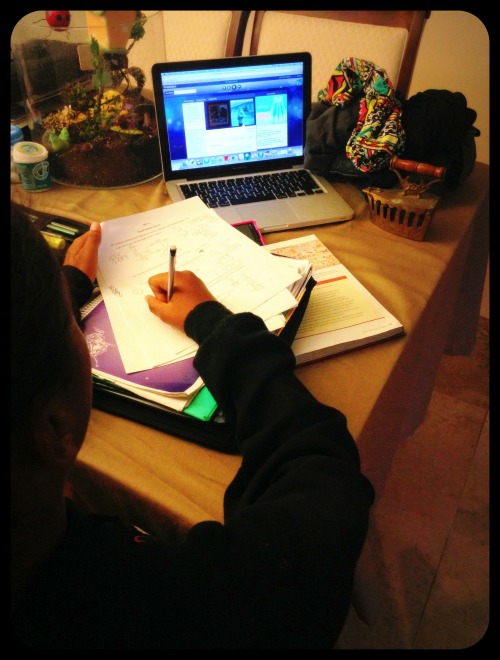
“But mom, why can’t I do my homework in front of the TV??? I’m not watching it, I’m just listening to it!!”, says my 12-year-old girl, emphasizing the word ‘watching’ with a half roll of the eyes.
My daughter is a really cool human & a great child. She is a tween so craziness and challenges come with the territory. Still, she has sweet moments, and she “OKs” everything, whether she remembers later or not.
But, my life was very different growing up in Italy and then Tanzania…
By age 9 my older brother & I alternated daily chores. We had to do dishes & sweep daily. There was no dillydallying, no talk-back, no having to dry our hands to like a song on Pandora…. none of that. We did homework on the kitchen table, our beds, in the yard, and wherever else. After I was done with homework I’d have to use the house phone, speak to a parent with good phone manners, & find out if my friends could come play. There was no texting them.
Everyone knew our plans; at least initially (smile). Outside we used our imagination to play with nothing. We picnicked under a tree in this huge sunflower field. We rode our bikes in circles in the bus’ parking lot and made sure we were home when the lights came on.
When I was 11 we moved back to Tanzania. Life here was drastically different, yet, in some respects there was more access to things than we had in the small Italian town we lived in. However, constant electricity and running water were gone. We had a western toilet in our home, but often had to use toilets requiring squatting, be they a hole over a sceptic tank, or an Eastern latrine. Not having water & electricity all the time required planning.
Though there was hired help, we also had to fetch water. If you don’t like fetching water you learn to use it sparingly. You take a shower from a bucket that’s a quarter full and come out clean! You recycle water so that first you wash your hair by dipping it into the bucket, then use the same water as the first cycle of your laundry, which you wash by hand. Having city-wide rationed electricity, meant ensuring you have kerosene, wick for lamps, and match sticks. You actually needed plenty of match sticks in Tanzania, because there is this one brand that makes them and you’re lucky if one out of five matches actually lights up & stays lit. HAHA!
We must see these things as humorous. Lack of electricity and paying for it in advance, meant using it responsibly. The radio would be on, and so would the TV for some parts of the day. We knew to close the fridge fast and to unplug the iron as soon as the job was done. Ironing was not always done with an electrical iron, either. Some times we would use a charcoal iron. It sounds like it’s from an entire different era, right? It’s still being used. A charcoal cast iron had to be used carefully. You’d also plan how to get hot coals so instead of wasting charcoal, kerosene fuel, and good match sticks, you’d use the charcoal for cooking. That required planning as well. A lot of planning and patience for a youngster, and children had to consider all these things from toddlerhood!
I am so infinitely grateful we lived this kind of life in my teenage years. Though I am sure I threw crazy hormonal arrows (figuratively speaking) at my mom, I think that having to deal with these realities made me get myself together quickly, thus sparing her six years of teenage craze. As far as school goes…wow! We had mandatory knee-high socks & buffed black shoes, mandatory hair pleats that I never had, monitors & prefects who thrived on their power to make us kneel for ‘misbehavior’, and hit-happy, switch-carrying teachers in the hallways who would whack you for no good reason.
In elementary school we had to chant….slowly & loudly…..”GOOD MORNING TEACHER!” Then we’d answer & ask, “FINE THANK YOU TEACHER, AND HOW ARE YOU, TEACHER?”, then we’d be permitted to sit down. In boarding school we had exactly 30 minutes to eat. The first year we ate food we individually cooked the night before, hoping it was still good without refrigeration. As a senior, food was made for us, so we’d hope it was ready & that we didn’t have to scoop bugs out of our beans. We’d always wash our dishes before returning to class. All of this, in 30 minutes.
At this school there was no corporal punishment. However, if we were late or didn’t follow other rules, we’d have some agricultural work for at least one period.
We studied in the hall after we cleaned our dinner mess. After two hours of supervised solid studying, we’d return to our hostel rooms (mine had four bunk beds with three beds each), and lights were out by 10pm. Everyone took showers in the morning, which I found to be unnecessary as the water was very cold, so I would leave some water in the courtyard for the sun to heat , and take a shower after school.
When I came to the United States I didn’t think I had a different work ethic than anyone else. I thought we all work hard & have different struggles. As the years passed I began to see certain differences & felt extremely fortunate for my history as it was.
As a girl I was lucky that my mother (who is partially Afghani & Punjabi) didn’t believe that I was worthless, blessed that she believed in education and sent me to school. I was also fortunate that I wasn’t betrothed at a young age, or at all. As I was in college I understood that I was privileged and had to make other women proud.
I would have to get the best grades, be a well-rounded student & not take electricity and running water for granted. So when my daughter asks why she can’t do her homework in front of TV, I don’t know what to say! OK, I do answer her, trying to use logic she’ll understand. She visited Tanzania for a few months in 2010, but she cannot relate to my history.
When my daughter was round age four she always asked if she could help with chores, but as I tried to rush I’d ask her to draw or play instead. I thought the environment around us would do for her what it did for me at her age. I knew I wasn’t in Italy, or in Tanzania, but I still thought I wouldn’t be the only one pushing for a balanced human. I also didn’t anticipate technology advancing so incredibly fast & how much gadgetry she would have at her disposal. In retrospect I should have encouraged her willingness to help.
She is now 12, doesn’t like to do any chores other than the occasional Swiffer mopping. She wants to do homework while listening to TV, somehow ignoring the visuals, and she wants to spend her other homework time listening to pop songs. She does practice Brazilian Jiu Jitsu and has a unique passion for it. But when not doing her school work, she looks at photos with funny quotes, watches short videos, and messages her friends on her phone. Our lives are so different. How do I teach her what I’ve been taught?
Is it drive? Is it thirst? Can you relate? How do you teach your children how to work hard? Please share your findings with me!
This is an original post to World Moms Blog by Sophia in Florida, USA. You can find her blogging at Think Say Be and on twitter @ThinkSayBeSNJ.
Photo credit to Trocaire. This photo has a creative commons attribution license.
I am a mom amongst some other titles life has fortunately given me. I love photography & the reward of someone being really happy about a photo I took of her/him. I work, I study, I try to pay attention to life. I like writing. I don't understand many things...especially why humans treat each other & other living & inanimate things so vilely sometimes. I like to be an idealist, but when most fails, I do my best to not be a pessimist: Life itself is entirely too beautiful, amazing & inspiring to forget that it is!
More Posts
Follow Me:


by World Moms Blog | May 20, 2014 | 2014, Awareness, Girls, Government, Human Rights, Humanitarian, International, Social Good, Social Media, World Moms Blog

As a mother, it is really hard to see other mothers go through certain challenges. I think it’s in me to be supportive in whichever way that I can when there is something I can do about a situation….like the hundreds of Nigerian schoolgirls who have been kidnapped; I marched to show my support on Mother’s Day.
Every mother’s dream is to see her children have the best in life, which includes education. A famous quote by renowned Ghanaian educationist Dr James Kwegir-Aggrey is:
“if you educate a man you educate an individual, but if you educate a woman you educate a whole nation”
This describes the power of educating young girls. It is every girl’s right and boys too to have an education but when these dreams are shattered it becomes a concern to all. Everyone knows the power of education, and it is evident that when a child is educated, he or she is set on the path to greatness.
‘Education is the most powerful weapon which you can use to change the world’- Nelson Mandela.
Taking these girls away from school is like taking them away from their paths to greatness. We hope and pray that they are returned safely to their families. This is why mothers of Ghana joined the campaign to #BringBackOurGirls on this past Mother’s Day in Accra. It was a solidarity march to present a petition to the Nigerian high commissioner in Ghana organised by Yasmeen. A mother herself, she is a songstress with a golden voice and a concerned citizen of our continent Africa. You can listen to her here .
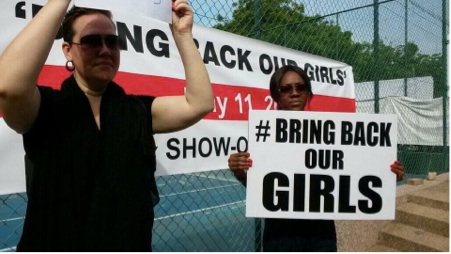
Mother’s Day is no fun if you know that another mother is grieving over her lost child. This was a great initiative by a group who care to march in solidarity in support of the kidnapped Nigerian school girls of Chibok. I saw the post on twitter and immediately wanted to be a part of this great cause. Thank you Yasmin for organising this!
It was an experience for both the young and the old as the children and babies were not left out. There were placards for everyone with ‘Bring Back Our Girls’ boldly inscribed on them. The media was present to cover the event, and the police were also there to ensure the safety of all who came for the walk.
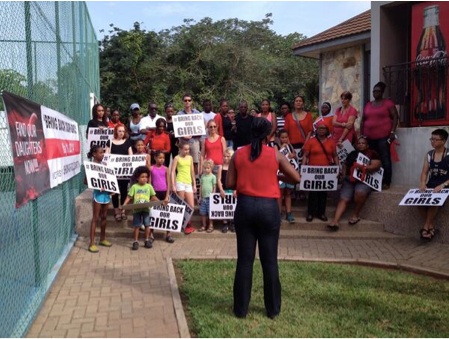
Almost everyone who came wore black and red to signify solemnity. Signatures were also appended on a banner which was later presented to the high commissioner. The walk was through some parts of the capital city of Ghana to the Nigerian High commissioner’s residence. It was such a solemn march and the support was so immense. As mothers everywhere are celebrated this month, let us not forget the ones who are heartbroken over their missing girls.
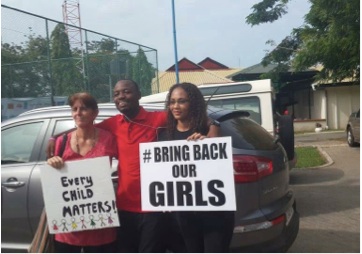
My heart aches each time I think of these girls or see a post about #BringBackOurGirls. We will not relent but continue to pray for the safety of the girls, their families and especially their mothers!
This is an original post written by Adwoa Gyimah of Ghana for World Moms Blog. Photo credits: Adwoa Gyimah
What more can we do to #BringBackOurGirls !?
World Moms Blog is an award winning website which writes from over 30 countries on the topics of motherhood, culture, human rights and social good. Over 70 international contributors share their stories from around the globe, bonded by the common thread of motherhood and wanting a better world for their children.
World Moms Blog was listed by Forbes Woman as one of the "Best 100 Websites for Women 2012 & 2013" and also called a "must read" by the NY Times Motherlode in 2013. Our Senior Editor in India, Purnima Ramakrishnan, was awarded the BlogHer International Activist Award in 2013.
More Posts

by World Moms Blog | May 10, 2014 | 2014, Education, Girls, Government, Human Rights, Humanitarian, International, Nigeria, School, Social Equality, Social Good, Social Media, Women's Rights, World Moms Blog
Abducted. Scared. Abused.
Sold.
That’s the likely fate 276 girls are facing, taken from their schools in the remote reaches of north-eastern Nigeria by the terrorist group Boko Haram. It’s been over three weeks since this started. We don’t what’s happening to them and we all fear the worst.
We’re sickened. We’re outraged. We also have no idea what to do. So, we’re doing what Americans tend to do. We’re taking selfies of ourselves with the #BringBackOurGirls hashtag. We’re tweeting. We’re posting facebook rants. In the lack of anything else to do, we’re signing online petitions by the thousands to make the world pay attention.

I’m not saying this these are bad actions to take. No! I signed the petition myself. I tweeted #BringBackOurGirls. I liked and shared Amy Poehler’s Smart Girl posts on facebook to help focus the national conversation on them. I was thrilled to hear that the U.S. is sending support and I believe social media was a part of that. But after I did those things, I was still sickened. Still outraged. I still didn’t know what to do.
And then I thought of this girl.

Malala Yousafzai. A Pakistani girl shot in the head by the Taliban at the age of 15 who still fights daily for girls’ education knows a little something about this issue, don’t you think? She has said, “The extremists are afraid of books and pens, the power of education frightens them. They are afraid of women.”
Then, let those men be afraid of me. I am even more dangerous than a schoolgirl with a pen. I’m an educated mother with a laptop. And I’m not just coming after them. I’m coming after their whole oppressive way of life.
The welfare of the kidnapped girls rests in someone else’s hands in the short term, but I advocate against poverty and injustice with an eye for the long term. While we wait and we pray for these girls, shouldn’t we be using this anger and anguish to secure a future for all girls coming after them?
If all children were in school as a normal matter of course, then schools with girls would cease to be obvious targets. That fundamental paradigm shift would be more effective than sending a SEAL Team in to get the girls (even though that is what I dearly want to happen right now) because educated and empowered girls become mothers who raise enlightened sons.
Here’s another Malala quote:
“Our men think earning money and ordering around others is where power lies. They don’t think power is in the hands of the woman who takes care of everyone all day long, and gives birth to their children.” But the men are wrong. Indeed, the hand that rocks the cradle rules the world.
So, what concrete actions can we – as Americans – take right now to hasten this reality? We can start by demanding that our U.S. Representatives pass the Education for All Act (H.R. 2780), which specifically calls out victims of human trafficking as some of the most vulnerable children to help. We can also call on them to sign U.S. Representative Jan Schakowksy’s letter to the Obama administration to fund $250 million over 2 years to the Global Partnership for Education, which aims to raise $3.5 billion from donor governments at a pledging conference this June. With $3.5 billion invested by donors, the Global Partnership can secure an additional $16 billion from developing country governments. By 2018, that investment can support quality education for 29 million children, largely in fragile and conflict-affected states.
As badly as we need the #BringBackOurGirls social media awareness today for the 276 girls we keep vigil for, these two steps are even more needed in the long run to help millions of other girls at risk now and in the future.
So, after you’ve tweeted and posted your selfie on facebook, do not stop there. Click on these links to contact your U.S. Representative about the Education for All Act and the Global Parntership for Education. Tell them that girls are showing incredible courage just to go to school, and the U.S. should support them. Educating all girls and boys will create a world where kidnapping and selling students is not acceptable in any culture on the planet.
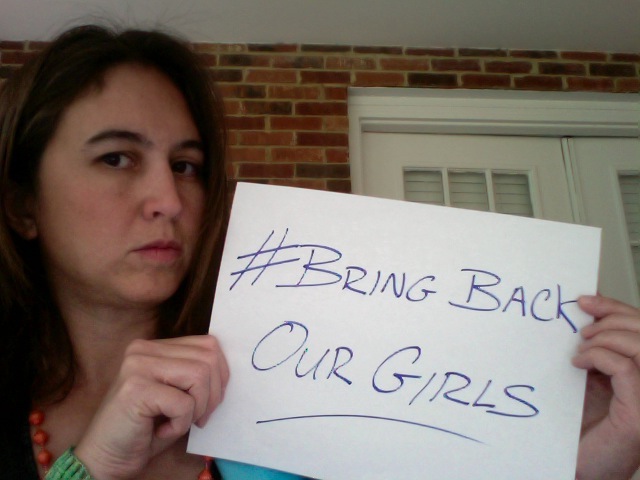
This is an original Post for World Moms Blog by Post by Cindy Changyit Levin who writes the Anti-Poverty Mom blog and is volunteer advocate for RESULTS, Shot@Life and the ONE Campaign. She can also be found on twitter @ccylevin.
Are you ready to take action?
World Moms Blog is an award winning website which writes from over 30 countries on the topics of motherhood, culture, human rights and social good. Over 70 international contributors share their stories from around the globe, bonded by the common thread of motherhood and wanting a better world for their children.
World Moms Blog was listed by Forbes Woman as one of the "Best 100 Websites for Women 2012 & 2013" and also called a "must read" by the NY Times Motherlode in 2013. Our Senior Editor in India, Purnima Ramakrishnan, was awarded the BlogHer International Activist Award in 2013.
More Posts

by Mannahattamamma (UAE) | Mar 19, 2014 | 2014, Computers, Cultural Differences, Culture, Education, Expat Life, Government, Homeschooling, Living Abroad, Multicultural, Older Children, Politics, Religion, School, Social Media, Traditions, UAE, USA
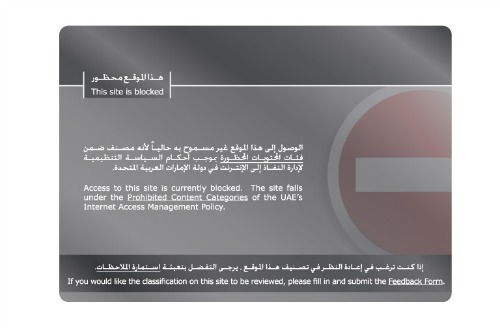 I always swore I would never home-school my children. I know many people do, and do it quite successfully, but I’m awfully fond of the quiet that descends on my house after they’ve tromped off to school. If that tromping were only happening from the bedroom to, say, the kitchen table, I think I might simply lock myself in the bathroom and never come out.
I always swore I would never home-school my children. I know many people do, and do it quite successfully, but I’m awfully fond of the quiet that descends on my house after they’ve tromped off to school. If that tromping were only happening from the bedroom to, say, the kitchen table, I think I might simply lock myself in the bathroom and never come out.
But as so often happens, my vow has collided with reality and I have found myself, in recent weeks, trolling home-schooling websites in search of teaching resources. My kids are now 9 (nine and a half, he would say indignantly) and 13; they go to a British school here in Abu Dhabi. That means they’ve spent a lot of time learning various English kings and queens, although they can’t recite them all in order. They study “maths,” and do prep rather than homework; they study English history and geography; they read mostly English writers in their literature classes. In addition to all those Anglo studies, they take Arabic language classes four days a week and once-weekly class called “Islamic Studies.” The Arabic classes are mandated by ADEC (Abu Dhabi Education Council) and I have to say, I’m much more interested in my kids learning Arabic than I am in their ability to name all the English kings and queens.
Having the boys be in an English system has been a learning curve for all of us. We’re learning two languages, actually, Arabic and, well, English: the boys now live in a world where things are “grey,” luggage goes in the “boot,” and we put garbage in the “bin.”
I’m not considering a dabble in the home-schooling system in order to beef up my boys’ appreciation of the Queen’s English, however. My kids, like every schoolchild in the country, have a curriculum that is at least in part determined by the UAE government, and that means there are things that aren’t supposed to be taught. I live in a place where censorship happens and where, unlike the States, the policies cannot be overtly challenged in the courts. So, for instance, in the States if you live in a town where they want to ban the Harry Potter books, you can take the school district to court. Not here.
We had to sign a permission slip so that our older son could get the science textbook that included the chapter on reproduction (with pictures of, you know, the embarrassing bits); his Latin class translates vinum as … grape, not wine. These are relatively small annoyances, although of course they are far from ideal.
There are, however, more serious concerns in terms of what shouldn’t be included in history courses and literature courses, and that’s where I find myself trolling the home-schooling sites for resources. The Holocaust can’t be taught here; Israel and Judaism are not supposed to be mentioned here; communism isn’t supposed to be discussed; evolution isn’t supposed to be taught; and the list goes on. Sometimes it feels as if we’re living in some kind of Bible-thumping town in the rural U.S and I realize, yet again, that fundamentalism can be seen as a global phenomenon that differs only in the nature of its prohibitions: the fear that motivates the prohibitions stays constant.
Before you leap to any conclusions, please know that the Muslim families I know are as frustrated by these government-issued edicts as are the non-Muslim families and many of us have talked together about what we can do to help our children gain a full picture of the world, regardless of what the government says. So it is that what in some contexts (living in Manhattan, for instance) would be a purely theoretical discussion has become in our household, a very pragmatic series of conversations.
Think about it: how would you talk to your kids about censorship? Is censorship always bad? Think about your children, if you have them, and the internet: are there sites you say they can’t see, or have you put a filter or something on your computer to prevent certain kinds of access? Do we agree that there is such a thing as “good” censorship? (Because of that whole teenage-boy-surfing-the-internet thing, I see a (slight) upside to living in a “nanny state.” I am fairly sure that if he wanted to look, my son wouldn’t be able to find basic porn–not to say that if he really wanted to dig around he couldn’t elude the censors, but at this point, I think his porn-directed vocabulary is still too limited to get around the government blocks. I guess we file that under “thank goodness for small favors,” right? )
My husband and I are both professors, and so we are able to bolster and supplement what isn’t happening in school, but we are also having a lot of conversations with our kids about censorship, politics, and the necessity of thinking about things in ways that are different from how we might think about them. We point out that the UAE isn’t Saudi Arabia; there is no Taliban here; the country is not governed by a theocracy of any sort. We know Jewish families who live here; I know gay couples who live here; a Mormon family lives next door to us. I see people on the beach in the scantiest of scanty bathing suits.
Living here means coming to term with nuance, with ambiguity, with living in a world that is organized around “both/and,” rather than “either/or.” The country is progressive and conservative; censorship is a problem that has a context; learning happens as much from what is not there as it does from what is there. It’s complicated and let’s be honest — no nine year old, no thirteen year old—and very few adults—really likes ambiguity. After all, if there is no “in-between” answer, life becomes much easier, doesn’t it?
No, of course I’m not happy that my kids have a biology textbook with the word “pig” marked out. Of course, I’m also not pleased that the Anglo-centric curriculum also neglects things like the US Civil War, other than in the most general sense. But I will say that I think it is, and will continue to be, a powerful learning experience for my children (and us) to have to confront and think about what it means to live in a place where the government attempts to exert such extensive control. I like to think that, paradoxically, these attempts at censorship will make my children more open-minded adults.
Have you ever been confronted with censorship? How have you dealt with it?
After twenty-plus years in Manhattan, Deborah Quinn and her family moved to Abu Dhabi (in the United Arab Emirates), where she spends a great deal of time driving her sons back and forth to soccer practice. She writes about travel, politics, feminism, education, and the absurdities of living in a place where temperatures regularly go above 110F.
Deborah can also be found on her blog, Mannahattamamma.
More Posts
Follow Me:


by Kyla P'an (Portugal) | Mar 4, 2014 | 2014, Awareness, Being Thankful, Education, Human Rights, Humanity, Inspirational, Interviews, Kids, Life Lesson, Motherhood, Older Children, Social Good, Social Media, Technology, USA, Womanhood, World Voice, Younger Children
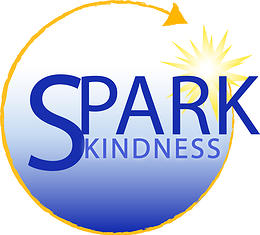 SPARK = Successful, Positive, Authentic, Resilient, Kids
SPARK = Successful, Positive, Authentic, Resilient, Kids
The moment you sit down with Christine Guthery, a funny transformation takes place, you find yourself swelling with optimism, self-confidence and personal-potential. It’s a gift Christine has, she simultaneously exudes these attributes and brings them out in others. She’s passionate about what she does and her enthusiasm has a way of igniting passion in others.
Christine is a lawyer by training but as the mother of three children (now ages 16, 9 and 7), she has discovered that her real calling is as a community activist and SPARK Kindness is community activism at its finest.
SPARK is the offshoot of a coalition called Parents against Bullying and Cyber-Bullying, which Christine founded in 2010, and its sister organization, the Metro-west [Boston] Anti-Bullying Coalition (ABC). The need for an anti-bullying coalition arose from a wide-spread, cyber-bullying incident at a local middle school, which impacted more than 90 students and their families in 2010.
Ironically, though neither Christine nor anyone in her family has ever been a victim of bullying, Christine is on a mission to prevent it. “Bullying is a social justice issue,” Christine says. “in order to rise above it, you have to be resilient, empowered, self-confident. I’m a lawyer by training and this idea of building resiliency inspires me. Everyone deserves to be treated with dignity and respect. That’s my cause.”
“The definition of ‘bully’ used to be pretty straightforward. It was a label once reserved for kids, who were considered outliers or playground thugs, the type of kids who committed physical acts on their victims. But times have changed. Now it’s not just the kids who are insecure or outcast that are doing the bullying, rather it’s also the popular kids, both boys and girls, who are trying to reach the top of their social/athletic/academic pyramid that can be the perpetrators,” Christine says.
“Not too long ago,” Christine continues, “a slanderous note passed around at school could impact a whole class of students or even a school community but when the kids went home at the end of the day, they left the incident at school. Now, with the Internet and smart phones, [and thanks to social media sites like Facebook, MySpace and Instagram,] bullying incidents can enter the cyber-sphere and quickly go viral. Kids have no way of leaving an incident behind them,” explains Christine. “In fact, these days, a great deal of bullying occurs during out-of-school-time.”
Christine believes that genocide and ethnic-cleansing—such as the ones that have occurred in Darfur, South Sudan and Nazi Germany—is “bullying taken to extreme measures.” And it’s really this mindset, this deep desire to eradicate the cause at it’s root, that has given rise to SPARK Kindness. The evolution came in 2012, when Christine realized that just talking about bullying wasn’t making progress.
“For two years [2010 & 2011] I had been focusing on bullying and trying to understand it better,” she says, “but then I realized, what if we shifted the conversation away from the outcome (bullying) and toward the prevention (nurturing kindness and resiliency)? What if our efforts were proactive rather than reactive?”
She compares this shift in mindset with the approach of Western medicine, where the focus is on addressing the illness, not on maintaining and promoting wellness. “I was finding that just talking about bullying was disempowering,” Christine reflects. “When I focused on the positives of resilience, kindness and courage, I felt empowered. It was exactly like the emotion of ‘elevation’ or self-transcendence that psychologist, Jonathan Haidt, described in his 2012 TED talk,” she says. “In other words, when you witness someone doing something positive or altruistic, it inspires you to do something positive or altruistic. This is where SPARK Kindness came from, how can we build the community we want rather than just address the ills we want to avoid?”
The answer:
teach children not just about kindness and emotional self-awareness early on but how to be resilient and seek support when they are feeling insecure or are suffering. SPARK Kindness, ignite positive change in your community.
 To find out ways to SPARK Kindness in your own community, click the logo above or visit http://www.sparkkindness.org/.
To find out ways to SPARK Kindness in your own community, click the logo above or visit http://www.sparkkindness.org/.
This post summarizes an interview between SPARK Kindness founder, Christine Guthery and World Moms Blog Managing Editor, Kyla P’an. This is a World Moms Blog exclusive interview.
Kyla was born in suburban Philadelphia but spent most of her time growing up in New England. She took her first big, solo-trip at age 14, when she traveled to visit a friend on a small Greek island. Since then, travels have included: three months on the European rails, three years studying and working in Japan, and nine months taking the slow route back from Japan to the US when she was done. In addition to her work as Managing Editor of World Moms Network, Kyla is a freelance writer, copy editor, recovering triathlete and occasional blogger. Until recently, she and her husband resided outside of Boston, Massachusetts, where they were raising two spunky kids, two frisky cats, a snail, a fish and a snake. They now live outside of Lisbon, Portugal with two spunky teens and three frisky cats. You can read more about Kyla’s outlook on the world and parenting on her personal blogs, Growing Muses And Muses Where We Go
More Posts - Website
Follow Me:
























